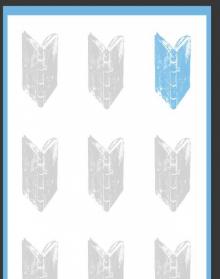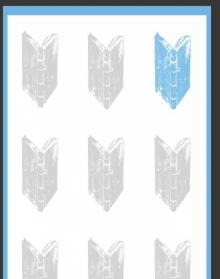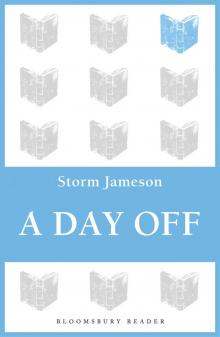- Home
- Storm Jameson
The Lovely Ship
The Lovely Ship Read online
The Lovely Ship
Storm Jameson
In this book none of the characters represent
real persons, living or dead. They are
wholly imaginary. The geography of the
book is not without imaginary elements, and
the shipbuilding history incidentally related
is true in essentials but makes no
attempt at being true of any one shipbuilding
town or river.
Contents
Book One Hansyke to Roxby
Chapter One
Chapter Two
Book Two Mary Hervey
Chapter One
Chapter Two
Chapter Three
Chapter Four
Chapter Five
Chapter Six
Chapter Seven
Book One
HANSYKE TO ROXBY
Chapter One
1
Mary Hansyke was born when her mother was travelling from Liverpool to her home on the southern edge of the Cleveland Hills. She had stayed in Liverpool longer than she meant and she was afraid that her first child would be born away from her home, and resolute that it should not be. The railway, with its known discomforts and unknown dangers, terrified her. For let us realise at once that, without being aware of it, Charlotte Hansyke was living in the dark ages. There were less than a thousand miles of inefficient railway in the whole country, and the coaches that carried passengers from one end of the land to the other were admitted, by all sound persons, to be infinitely safer and more comfortable than any clumsy cindery train could ever be. Not that Charlotte Hansyke had any intention of trusting herself to the coach, more especially as she had with her three trunks of new dresses from Paris, where Madame de Pompadour was that year considered the model, at least of fashion. She insisted that her husband should hire a carriage to make the journey across England, from Liverpool almost to the Yorkshire coast. He urged her to stay where she was. The country was in a very disturbed state, alarmed by rick-burning and rioting Chartists, and startled by the extraordinary emergence into the light of day—thanks to the rash tongues of certain so-called reformers—of gangs of young women who were normally kept in proper obscurity in the mines, where they hauled tubs of coal all day, an occupation that necessitated their being naked to the waist, with canvas trousers below that, and an iron chain attached to a leather belt running between their legs. Their untoward appearance, like Devils from a trap in an old miracle play, had lent quite a sinister air to the rumour of subterranean trouble. There was much talk, in the landowning and political circles where the Hansykes were staying, of revolution and bloodshed, and all things considered, a journey across England in the winter of 1841 presented itself as no fit proceeding for a gentlewoman in delicate health. But Hansyke’s protests were silenced by the obstinacy of the childbearing woman. Charlotte rejected the first carriage he procured and at last set out in what was practically a closed barouche, very roomy inside but with no provision for carrying luggage. Her woman, attended by her husband’s stable-bred servant, followed in another carriage with the luggage.
In Manchester the driver fell ill and giving himself up for lost began to testify loudly to the state of his soul. Richard Hansyke, descending to the stable yard at the earnest entreaty of the innkeeper, tried to reason with him, and thereupon he began to testify even more poignantly to the state of his stomach. Hansyke was compelled to leave him and hire another coachman of the innkeeper’s acquaintance. This was a sergeant, an excellent fellow who had been in the French wars, had lost a leg and kept his appetite for hollands. Hansyke watched him closely, but on the evening of the third day of their journey he thought that the man might be tipsy. They had entered Yorkshire and were following up one of the narrow valleys cut between the West Riding hills. It was like any other of the valleys they had traversed since leaving the plain of East Lancashire asleep under a blaze of heat. Grassy foothills, sparsely wooded, rose in a series of slopes to the moors and the higher, bleaker hills of the Pennines. A small stream ran down the valley through what was once a cluster of cottages folded in fields of pasture-land, and now was a small and starkly hideous village huddled around the mill. A spatter of mean houses spread up either slope from the banks of the defiled stream. They halted, tailing off in straggling lines along the hillside, well short of the grounds of the great house, built of stone and opulently parked, where lived the millowner and his family. Down in the town itself a few houses, more solid but no more gracious than the rest, stood up among the rabble, their upper windows drawing the last glances of the dying sun. These were the homes of his doctor, his manager, his banker. Above them all, weavers’ hovels, houses and mansion, the moor mingled its pure breezes with the vapours rising from the murdered valley.
The barouche, its brakes dragging, started down the steep cobbled road that led to the centre of the town. The coachman started to sing in the same instant. He stood up on his box and swayed as the carriage rocked down the hill.
“O Polly love, O Polly, the rout has now begun,
And we must be a-marching at the beating of the drum;
Go dress yourself in all your best and come along with me,
I’ll take you to the cruel wars in High Ger-ma-ny.”
Richard Hansyke, his head and half his body out of the carriage window, ordered him to stop. He was angry, and alarmed for his wife, but neither to excess. The road poured down into the pool of the town, the man sang, the carriage lights danced, Charlotte whimpered, the night rushed up from the valley to receive them.
The coachman threw him a surprised glance. “Song o the army,” he explained, and prepared to begin another verse. They were passing a low building with dusty windows offering torches to the gloom. The doors stood open and a crowd of children rushed out. They straddled across the road, as befits men and women of five and six and seven who have been at work for ten hours. One waved a skinny arm at the carriage, another, emerging from under its wheels, lifted incurious eyes and pale lips to the windows; all were wrapped in jackets and mufflers, shivering in the hot summer air after hours spent in a tropical steam. The coachman pulled up to avoid an inevitable catastrophe. Leaning down, he addressed them in a familiar manner.
“Miserable droppings,” said he. “Deformities. Run away home, pretty loves. Loves. Doves.” He broke into song again.
“O Harry love, O Harry, do hearken what I say;
My feet are all too tender, I cannot march away.”
Charlotte Hansyke looked fearfully out of the barouche.
“Who are they all?” she asked.
“Children from the factory,” her husband said briefly, his eye on the horses. The coachman spoke confidentially about marriage and family life.
“But—unhappy,” Charlotte murmured, suppressing a violent shudder.
Charlotte Hansyke was a wilful, pleasure-loving woman with no apparent depths in her nature, but she suffered a severe revulsion of feeling at the thought that the child in her womb might have been destined to join that doomed company. A tremor that seemed to start in the recesses of her body ran through her limbs, loosening her joints and disordering her brain. At the same moment certain uneasy sensations that she had been enduring in silence for the past mile of the journey, drew themselves into one definite and rending pain. She looked at her husband with a blind, stricken gaze.
“What is it, Charlotte?” he asked sharply.
“It’s come,” said she. “We must stay here.”
He sprang up and directed the man to drive to the millowner’s big house that faced them from the other side of the valley, but his wife shook her head.
“It will have to be the nearest house,” she told him. “This place here,” and the barouche,
with the driver’s voice cracking on: “O cursed are the cruel wars that ever they should rise,” was stopped in front of a weaver’s cottage. It had two rooms and two storeys, and the lower room was, by Richard Hansyke’s peremptory orders, cleared of five children who lay alseep where they had dropped in their factory clothes, and were pushed and carried up the stairs. Charlotte lay on cushions dragged from the barouche, staring at the horrors of the ceiling, less than six feet above her head, while another order, less peremptory but as urgent, was sent to the big house for linen and coverings, and a woman holding a shawl round her meagre body scurried for the doctor.
Charlotte’s child, a girl, was born about midnight, and its loud wails failed to wake the children sleeping upstairs. In the early morning, when Charlotte was lying exhausted and appeased, conscious of an intolerable ordeal tolerably endured, her eyes, fixed on the shadowy stairs leading to the upper room, became aware that the shadows were moving. Without a sound, like small mutilated ghosts, the children were going out to their work.
She closed her eyes so that the woman attending on her might suppose she was asleep and had not seen. After breakfast at the big house, her husband came down to her. His courteous inquiries concealed all the annoyance he felt at her preposterous choice of a birthplace for their child. He explained formally and in minute detail what arrangements he was making to move her.
“To-morrow,” said Charlotte, and shut her eyes.
“I beg that you will let it be to-day.”
His wife moved her head in dissent. She opened her eyes suddenly and surprised him looking down at her in polite despair.
“Look at your daughter,” she said, and lifted the child’s coverings.
He regarded his first child with no show of interest. He was indeed lost in a curious memory of his own boyhood. He saw himself standing, a very small boy, for his head did not reach the top of the table, between his father and another tall gentleman in a plum-coloured coat. Outside the windows of the library the sun shone down on the soft, vivid green of the lawn dappled with the shadows of the trees. He fixed his eyes on the bare brown patch under one tree, the ancient of the garden, as old as the house, incalculably old and secure. Behind it he could see the brown and ruffled silver waters of the lake. He was listening but not intently to plum-coloured’s questions and at last heard a vibrant voice say: “The boy’s a fool: he never heard of Xerxes.” Then he was outside with a smarting ear, and a groom was showing him a small, wriggling body all tail and sharp wicked teeth. He was in the field behind the big barn, ferreting with the young groom. A warm musty scent pervaded the dry ditch into which he pressed his small body. The field was flooded with sun, and the burning whiteness of the marguerites scorched his eyes. He crept closer to the groom, whose hot bright eyes shone like the eyes of the ferret, sheltering himself under the lad’s crouching body, growing drowsy with the heat and the mingled smell of ferret and warm velveteen, until he fell asleep, dimly conscious of white teeth in a thin brown face, and not sure whether it was the groom’s face or the ferret’s so close to his own.
He came out or his dream to realisation of his wife’s voice. He had not the least idea what she was saying, but he answered her soothingly and agreed to leave her in the weaver’s wretched cottage for another day. He bent another look on his child, wishing that Charlotte had seen fit to give him a son, and then excused himself. The ladies of the house were, he said, on their way down to visit her. Charlotte became very anxious about her looks and he reassured her politely before going away to pursue inquiries about the other carriage, which with luggage and servants, had apparently dropped out of the world some time during the previous day. . . .
Charlotte drowsed through the long hours in the bed brought down from the big house. The room was very close, but her bedroom, if she had been in her own house, would have been kept just as warm and stifling at this time. She endured it silently, but she was grateful when dusk, insinuating itself into the room, brought with it a breath of cool air. She was alone, and, as the room grew darker, she fell into a half sleep that passed by imperceptible stages into a nightmare. She seemed to be lying in pitch dark while the strength ebbed from her body, leaving it empty, light and remote—so that there was nothing left of her but a spark in the enveloping darkness. She knew that she was dying, and when an ancient hag crept up to the bed she did not know whether it was the woman of the house or an emissary of death. She tried to cry out, but her tongue and all her limbs were paralysed. Horror, vague and stifling, muffled her up to the throat.
A slight sound roused her. Hardly believing in her escape, she woke from the nightmare to a room not yet quite dark. There was no old woman, but as she looked round nervously for that dreadful personage of her dream, she saw another apparition. This was almost as terrifying as the other, and she gave a little cry of fear. Whereupon the apparition came forward and placed a candle it carried on the table by Charlotte’s bed. It stood there, uttering sounds of which she could make nothing. She eyed it fearfully. Its eyes were almost on a level with her own. Its head, sunk between its shoulders, was too large for the tiny body that did not so much support as endure it. Cheeks and lips, both bloodless, were distorted into an expression of what Charlotte first thought to be hate, and then saw, by some miracle of perception, to be a timid and ingratiating smile. It stood with one hand extended towards the bed and Charlotte saw with horror that this hand had lost three of its fingers.
She found her tongue.
“What do you want?”
At that the apparition advanced another step, and whispered almost in her ear. Still she did not understand what it said, though she seemed to herself to be listening with her whole body.
“What have you come here for?”
“To see the babby. “
Ready to faint with relief at having understood, Charlotte drew back the clothes round the sleeping child and took heart from her visitor’s mouthing admiration of the babby to question him. When she had made out that he was six years old, she thought that she had never until then known what grief was. The memory of the birth pangs she had endured, her first experience of pain, receded before a confused vision of the sum of human misery. She might have been giving birth to a soul. She asked the child his name. He produced it with a frown and a struggle with his tongue. “Robert Estill.”
Charlotte closed her eyes, and when she opened them again he had gone, and for a while she lay turning over in her mind the idea that he, like the hag, was a creation of her tired brain. But he had brought her back to life, and confusedly, recalling his name with an effort, she thought that her husband must find him, do something for him. . . .
2
Mary Hansyke at eight was a small, stolid child, pursuing a life of her own in a household that was not so much a household as a civil liability. Her father, holding stiffly to his conception of the good life which—in the middle of the nineteenth century—wavered hardly a pin-point from the mixture of ruffianage and politeness that composed an eighteenth century Hansyke’s code, held as stiffly to the last inches of the land that an abbot of Whitby had allotted, for services rendered, to the first Hansyke, thus emerging into history like a dog with a bone between his teeth. It was, as land, not much good, being half peaty moor and ling and half impoverished grass-land. Roxborough is a moorland parish running down to a valley, on the far side of which rise ridged hills called Riggs, dotted with agile black-faced sheep. It is wild and poor, and Hansyke Manor, a Gothic barn of a house, very cold and inconvenient. What money remained of Hansyke accumulations had been dissipated by Mary’s father when he met Charlotte Garton and fell impetuously in love with her. He married her before discovering that he could have had her on less exigent terms. She was tall and shapely, with a warm, flushed, dusky beauty, too early ripe. She came of solid bourgeois stock, heavy purse-proud people. Her brother was a shipbuilder of Danesacre, and Charlotte brought her husband more money than he knew she had.
She brought—what he had not bargained for�
��wits to spend it, and in a very short time the mortgages on house and land were renewed and Charlotte Hansyke was selling out her interest in the Garton shipping firm. She had in her nature a strain of the wildness that crops out in the stolidest of Yorkshire stock, and Hansyke Manor—between her friends and her husband’s—was a queer place for their child. The fifties of the nineteenth century were wildish, with an odd lingering echo of an earlier century’s licence, rather cracked and uncertain, a little disconcerted by the piety that was creeping over England from Windsor and Balmoral, and separated by turbulent years from the splendid extravagance of a later era. Gentlemen still drank themselves under the table as a seigniorial gesture, but gallants were out of fashion, and the number of Charlotte Hansyke’s masculine friends shocked the gentry of the district and angered her husband past contempt.
One day, in her eighth year, Mary Hansyke stood on the steps below the main door, coolly watching her father laying his crop about the long legs of a strange young man, whom he held bent double under one arm. There was something very raffish and delightful about those long checked legs. They were tremendously active and contorted. Mary Hansyke laughed and clapped her hands. Whereupon her father threw the young gentleman away, and, brushing his hands, came to pick her up and carry her off to the stables. He put her on a new and bad-tempered mare and she fell off, hurting her head. In the library her father gave her a biscuit soaked in sherry because she had contrived not to cry. After that he offered to carry her out of reach of her Scots governess, but Mary Hansyke had a profound sense of duty and took herself back to the schoolroom, where Miss Flora Cunningham waited for her, primed with caraway tea and the names of the Jewish kings. Mary disliked the smell of caraway and the genteel belchings it produced in its dealings with Miss Flora’s digestion, but she stuck stolidly to the Jewish kings, having bargained with herself to add them that week to a hoard of particular information gathered from Miss Flora. She was the seventh pupil to whom Miss Flora had taught the names of the Jewish kings, the use of oil, leeches, sage, aniseeds and cardamom, together with the nature and composition of Noyau, Hippocras, Capillaire, Ratafia, and Hollands or Geneva, and the history of silk manufacture. Curious creature, who existed solely to be picked over, like a rag-bag, by inquiring youth.

 Company Parade
Company Parade The Lovely Ship
The Lovely Ship The Moment of Truth
The Moment of Truth The Road from the Monument
The Road from the Monument The Journal of Mary Hervey Russell
The Journal of Mary Hervey Russell The Black Laurel
The Black Laurel A Day Off
A Day Off